第28章 VIII. EDUCATION.(4)
All this is changing before our eyes, with the advancing humanness of women. Not yet, however, has their advance affected, to any large extent, the base of all education; the experience of a child's first years. Here is where the limitations of women have checked race progress most thoroughly. Here hereditary influence was constantly offset by the advance of the male. Social selection did develop higher types of men, though sex-selection reversed still insisted on primitive types of women. But the educative influence of these primitive women, acting most exclusively on the most susceptible years of life, has been a serious deterrent to race progress.
Here is the dominant male, largely humanized, yet still measuring life from male standards. He sees women only as a sex. (Note here the criticism of Europeans on American women. "Your women are so sexless!" they say, meaning merely that our women have human qualities as well as feminine.) And children he considers as part and parcel of the same domain, both inferior classes, "women and children."
I recall in Rimmer's beautiful red chalk studies, certain profiles of man, woman and child, and careful explanation that the proportion of the woman's face and head were far more akin to the child than to the man.
What Mr. Rimmer should have shown, and could have, by profuse illustration, was that the faces of boy and girl differ but slightly, and the faces of old men and women differ as little, sometimes not at all; while the face of the woman approximates the human more closely than that of the man; while the child, representing race more than sex, is naturally more akin to her than to him. The male reserves more primitive qualities, the hairiness, the more pugnacious jaw; the female is nearer to the higher human types.
An ultra-male selection has chosen women for their femininity first, and next for qualities of submissiveness and patient service bred by long ages of servility.
This servile womanhood, or the idler and more excessively feminine type, has never appreciated the real power and place of the mother, and has never been able to grasp or to carry out any worthy system of education for little children. Any experienced teacher, man or woman, will own how rare it is to find a mother capable of a dispassionate appreciation of educative values. Books in infant education and child culture generally are read by teachers more than mothers, so our public libraries prove. The mother-instinct, quite suitable and sufficient in animals, is by no means equal to the requirements of civilized life.
Animal motherhood furnishes a fresh wave of devotion for each new birth; primitive human motherhood extends that passionate tenderness over the growing family for a longer period; but neither can carry education beyond its rudiments.
So accustomed are we to our world-old method of entrusting the first years of the child to the action of untaught, unbridled mother-instinct, that suggestions as to a better education for babies are received with the frank derision of massed ignorance.
That powerful and brilliant writer, Mrs. Josephine Daskam Bacon, among others has lent her able pen to ridicule and obstruct the gradual awakening of human intelligence in mothers, the recognition that babies are no exception to the rest of us in being better off for competent care and service. It seems delightfully absurd to these reactionaries that ages of human progress should be of any benefit to babies, save, indeed, as their more human fathers, specialized and organized, are able to provide them with better homes and a better world to grow up in. The idea that mothers, more human, should specialize and organize as well, and extend to their babies these supreme advantages, is made a laughing stock.
It is easy and profitable to laugh with the majority; but in the judgment of history, those who do so, hold unenviable positions. The time is coming when the human mother will recognize the educative possibilities of early childhood, learn that the ability to rightly teach little children is rare and precious, and be proud and glad to avail themselves of it.
We shall then see a development of the most valuable human qualities in our children's minds such as would now seem wildly Utopian. We shall learn from wide and long experience to anticipate and provide for the steps of the unfolding mind, and train it, through carefully prearranged experiences, to a power of judgment, of self-control, of social perception, now utterly unthought of.
Such an education would begin at birth; yes, far before it, in the standards of a conscious human motherhood. It would require a quite different status of wifehood, womanhood, girlhood. It would be wholly impossible if we were never to outgrow our androcentric culture.